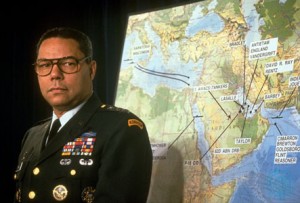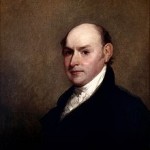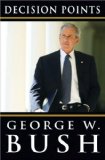It does not matter what the United Nations may have said. The President of the United States may not commit us to war without authorization by the US Congress. President Obama has ordered the United States military to commit acts of war against the nation of Libya. That he has (so far) only authorized cruise missiles and bombing raids does not make the actions anything other than acts of war.
The President’s impulsive decision to intervene militarily in the rebellion/civil war in Libya is foolish in the extreme. It demonstrates hubris, hypocrisy, and contempt for the Constitution. And a shocking ignorance of history and the dynamics of foreign policy.
 And a clumsy disregard for the “Powell Doctrine” (which more accurately ought to be called the “Weinberger Doctrine”):
And a clumsy disregard for the “Powell Doctrine” (which more accurately ought to be called the “Weinberger Doctrine”):
- Is a vital national security interest threatened?
- Do we have a clear attainable objective?
- Have the risks and costs been fully and frankly analyzed?
- Have all other non-violent policy means been fully exhausted?
- Is there a plausible exit strategy to avoid endless entanglement?
- Have the consequences of our action been fully considered?
- Is the action supported by the American people?
- Do we have genuine broad international support?
 My overwhelming first response is: A LOT of people owe George W. Bush an apology about now. Starting with Barack Obama, Hilary Clinton, and the editorial boards of NPR and the New York Times.
My overwhelming first response is: A LOT of people owe George W. Bush an apology about now. Starting with Barack Obama, Hilary Clinton, and the editorial boards of NPR and the New York Times.
Perhaps the most jarring, maddening aspect of Obama’s military adventurism is his total disregard for the constitutional limitations on the president’s use of military force. Bush sought, and received, congressional authorization for the use of armed force in Iraq. It passed the House 297-133 and the Democratically controlled Senate 77-23. A MAJORITY of the Democratic Senators (29-21) voted for it! The TITLE of the Bill was The Authorization for Use of Military Force Against Iraq Resolution of 2002!
Obama is relying exclusively on a vote of the United Nations Security Council for his decision to make limited war on Libya. He has done this without ANY authorization from Congress.
I’m listening for the howls of outrage from Harry Reid and Nancy Pelosi, but all I’m hearing is…. [crickets chirping].
 I will stipulate to the court that Muammar Gadaffi is a tyrant. I pray for his overthrow and a grant of freedom and a peaceful representative government to the people of Libya (as many did in both Egypt and Tunisia earlier this year).
I will stipulate to the court that Muammar Gadaffi is a tyrant. I pray for his overthrow and a grant of freedom and a peaceful representative government to the people of Libya (as many did in both Egypt and Tunisia earlier this year).
However, I am ever mindful of the principles of John Quincy Adams.  Even before he was elected president, Adams was (and remains) our most experienced foreign diplomat ever. At 11, he went with his father to France. At 14, he went as Secretary to the US mission to Russia. At 26 he was US Ambassador to the Netherlands. At 30, he was our Ambassador to Prussia. He served in the MA legislature and the US Senate. Finally, in his 40’s he was our ambassador to Great Britain, before being appointed Secretary of State in 1817 by the newly elected President James Monroe. The famous “Monroe Doctrine” which warned the european powers to stay out of the affairs of the Western Hemisphere was formulated by John Quincy Adams, though it acquired its name from the President rather than the author.
Even before he was elected president, Adams was (and remains) our most experienced foreign diplomat ever. At 11, he went with his father to France. At 14, he went as Secretary to the US mission to Russia. At 26 he was US Ambassador to the Netherlands. At 30, he was our Ambassador to Prussia. He served in the MA legislature and the US Senate. Finally, in his 40’s he was our ambassador to Great Britain, before being appointed Secretary of State in 1817 by the newly elected President James Monroe. The famous “Monroe Doctrine” which warned the european powers to stay out of the affairs of the Western Hemisphere was formulated by John Quincy Adams, though it acquired its name from the President rather than the author.
Let me quote from Adams’ speech on July 4th, 1821:
Wherever the standard of freedom and Independence has been or shall be unfurled, there will [America’s] heart, her benedictions and her prayers be.
But she goes not abroad, in search of monsters to destroy.
She is the well-wisher to the freedom and independence of all.
She is the champion and vindicator only of her own.
She will commend the general cause by the countenance of her voice, and the benignant sympathy of her example.
She well knows that by once enlisting under other banners than her own, were they even the banners of foreign independence, she would involve herself beyond the power of extrication, in all the wars of interest and intrigue, of individual avarice, envy, and ambition, which assume the colors and usurp the standard of freedom.
The fundamental maxims of her policy would insensibly change from liberty to force….
She might become the dictatress of the world. She would be no longer the ruler of her own spirit….
[America’s] glory is not dominion, but liberty. Her march is the march of the mind. She has a spear and a shield: but the motto upon her shield is, Freedom, Independence, Peace. This has been her Declaration: this has been, as far as her necessary intercourse with the rest of mankind would permit, her practice.
Afghanistan was the base from which murderous attacks on the United States were launched. We had a right and a duty to respond with military force, though I differ with Presidents Bush and Obama on the wisdom of continuing to remain there.
Iraq invaded an ally of the United States and we were obligated by treaty to come to her defense, and join the war against Iraq. For ten years thereafter, Iraq repeatedly violated the terms of the cease-fire in that first Gulf War and repeatedly provoked and played games with International Inspections that she had agreed to. Both the United Nations and the United States Congress had had enough by 2002.
And Libya? Gaddafi is a tyrant and deserves to be overthrown. He’s the 2nd longest ruling tyrant in the world. But that begs the question, “Why haven’t  we launched cruise missiles at Havana?” There are a half a dozen other tyrants who rule cruelly and unjustly. Shall we attack them all?
we launched cruise missiles at Havana?” There are a half a dozen other tyrants who rule cruelly and unjustly. Shall we attack them all?
Obama has now launched more cruise missiles than all the other Nobel Peace Prize Winners. . . combined! And in the words of Michael Moore (oh sweet irony!), perhaps we should declare a 50 mile quarantine around Obama’s Nobel Peace Prize.
Seriously, Obama’s hypocrisy, his hubris, and his disregard for the Constitution are dangerous.





